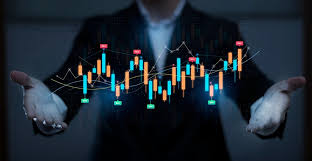
Is Forex Trading Gambling? Exploring the Myths and Realities
Forex trading has gained immense popularity over the past few decades, attracting millions of individuals seeking to profit from currency fluctuations. However, a lingering debate persists: is forex trading simply a form of gambling? To answer this question, it is essential to dissect both the nature of forex trading and the fundamental principles of gambling. In this exploration, we will uncover the similarities and differences, as well as the risks and rewards associated with both activities. The insights will help you determine whether you view forex trading as a legitimate investment strategy or a gamble. For those interested in getting started with trading, platforms like is forex trading gambling Trading Platform PH can offer valuable resources and tools.
Understanding Forex Trading
Forex, or foreign exchange trading, involves buying and selling currency pairs in an effort to profit from changes in exchange rates. The forex market is the largest financial market in the world, with a daily trading volume exceeding $6 trillion. This vast market operates 24 hours a day, making it accessible to traders globally. Unlike stock trading, where investors buy shares of companies, forex trading focuses on the relative value of one currency compared to another. For instance, when a trader believes the Euro will strengthen against the US Dollar, they will buy the EUR/USD currency pair.
What Constitutes Gambling?
Gambling is typically defined as risking money or valuables on an uncertain outcome, primarily for the purpose of winning additional money or valuables. Common forms of gambling include casino games, lotteries, and sports betting. The critical element here is the reliance on chance to determine the outcome. While skill can enhance a gambler’s odds, the core of gambling is still uncertainty and luck.
Comparing Forex Trading and Gambling

Risk Management
A significant difference between forex trading and gambling lies in the approach to risk management. In forex trading, traders analyze market trends, utilize technical analysis, and apply various strategies to manage their risk. Successful traders often have a well-defined trading plan that includes stop-loss orders and risk-reward ratios. On the other hand, many forms of gambling, such as poker, do allow for some level of strategy; however, games like roulette or slot machines are purely based on chance, with little opportunity for skillful intervention.
Market Analysis vs Luck
Forex trading is heavily influenced by market factors such as economic indicators, geopolitical events, and market sentiment. Traders rely on analysis and comprehensive research to inform their decisions. This is in stark contrast to gambling, where even the most skilled players can lose due to unpredictable outcomes. While it’s true that speculation is a part of forex trading, informed trading can significantly reduce the element of chance.
Long-Term vs Short-Term Perspective
Another distinction is the time frame associated with trading and gambling. Forex trading can be approached with a long-term investment strategy, focusing on economic trends and currency stability. Many traders engage in swing trading or position trading, holding positions for days, weeks, or even months. In contrast, most gambling activities are centered around short-term outcomes, with participants seeking immediate gratification rather than long-term wealth accumulation.
The Psychological Aspect

Both trading and gambling invoke strong psychological responses, including fear and greed. However, successful forex traders develop the discipline to manage their emotions while making rational decisions based on market data. Conversely, gamblers often find themselves succumbing to emotional impulses, chasing losses, or making irrational bets in hope of a turnaround. Understanding this psychological landscape is crucial when assessing whether one is engaging in trading or gambling.
Legal and Regulatory Framework
Forex trading operates under a well-established regulatory framework in many jurisdictions, protecting traders and ensuring fair practices. Agencies such as the Commodity Futures Trading Commission (CFTC) in the United States, and the Financial Conduct Authority (FCA) in the United Kingdom, impose strict rules on forex brokers to mitigate the risks of fraud. In contradiction, gambling regulations vary widely, with some forms of gambling being entirely illegal in certain regions. The existence of a regulatory structure in forex trading lends a level of legitimacy that gambling often lacks.
Conclusion: Is Forex Trading Gambling?
In conclusion, while forex trading shares some superficial similarities with gambling, such as the potential for loss of capital and the influence of market sentiment, fundamental differences can be identified. Forex trading can be approached as a structured investment opportunity, supported by analysis, strategy, and risk management. In contrast, gambling tends to operate under the predominance of luck and chance, often leading to unpredictable outcomes.
Ultimately, whether one considers forex trading to be gambling often depends on their approach to it. Traders who prioritize education, strategy, and risk management are likely to view forex as a legitimate financial endeavor, while those who engage recklessly without proper knowledge may liken it to gambling. As with any financial endeavor, it is essential for individuals to proceed with caution and make informed decisions for sustainable success.
